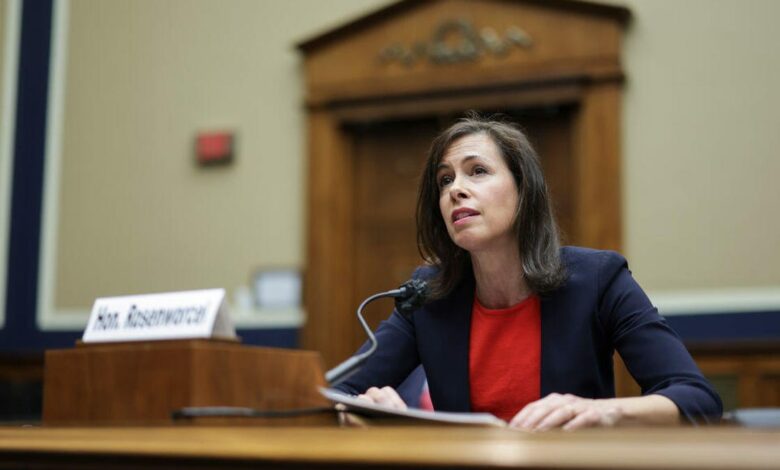GOP Tells FCC to Halt New Work After Trump Win

It didn’t take long for Donald Trump’s victory in the US presidential election to have an impact on internet policy. A day after the election, House Energy and Commerce Chairman Cathy McMorris Rodgers, a Washington Republican, said sent a letter to Federal Communications Commission Chairwoman Jessica Rosenworcel, urging her to stop working on “partisan or controversial” items on her agenda.
“There are many bipartisan, consensus items that the FCC could pursue to fulfill its mission before the end of your term,” McMorris Rodgers wrote. “I urge you to focus your attention on these matters.”
The FCC wasn’t alone: McMorris Rodgers sent a version of the letter to the heads of the Consumer Product Safety Commission, the Federal Trade Commission, the Federal Energy Regulatory Commission and the Nuclear Regulatory Commission. She was a staunch opponent of many FCC actions during US President Joe Biden’s four years in office.
In July, for example, the FCC a rule approved allowing schools and libraries to use federal funds to lend Wi-Fi hotspots to students and others, saying the move would help people without a solid internet connection at home. McMorris Rodgers called the move misleading and condemned it as an overstep.
“The FCC is expanding its efforts to advance Chairman Rosenworcel’s pet projects,” she said said in a statement at the time. “The FCC should instead work with Congress to advance its policy goals.”
The FCC consists of five commissioners, one of whom is appointed as chairman by the American president. Traditionally, the FCC chairman steps down when the opposition party wins the presidency. (Democrats sent a similar letter to former FCC Chairman Ajit Pai when Biden won in 2020, calling it a “time-honored tradition.”)
Current FCC Chairman Rosenworcel has championed progressive internet policies, supported net neutrality, fought digital discrimination and advocated internet subsidies for low-income users.
The two Republican FCC commissioners have attacked this policy. Brendan Carr, the front-runner for the next FCC chairman under the Trump administration, has been critical of government regulations such as net neutrality and the requirement that internet providers that receive federal money offer affordable plans.
Most of the important issues, such as net neutrality, have already been approved by Rosenworcel’s FCC. The November agenda is relatively uncontroversial, with the main topic being a decision on reporting requirements for TV channel blackouts during negotiations between broadcasters and distributors. The FCC could also delay any items for which there are existing petitions for reconsideration, industry officials said Communication daily.
Rosenworcel did not say how Trump’s victory would affect the FCC’s agenda over the next two months. The FCC also did not respond to CNET’s request for comment.




